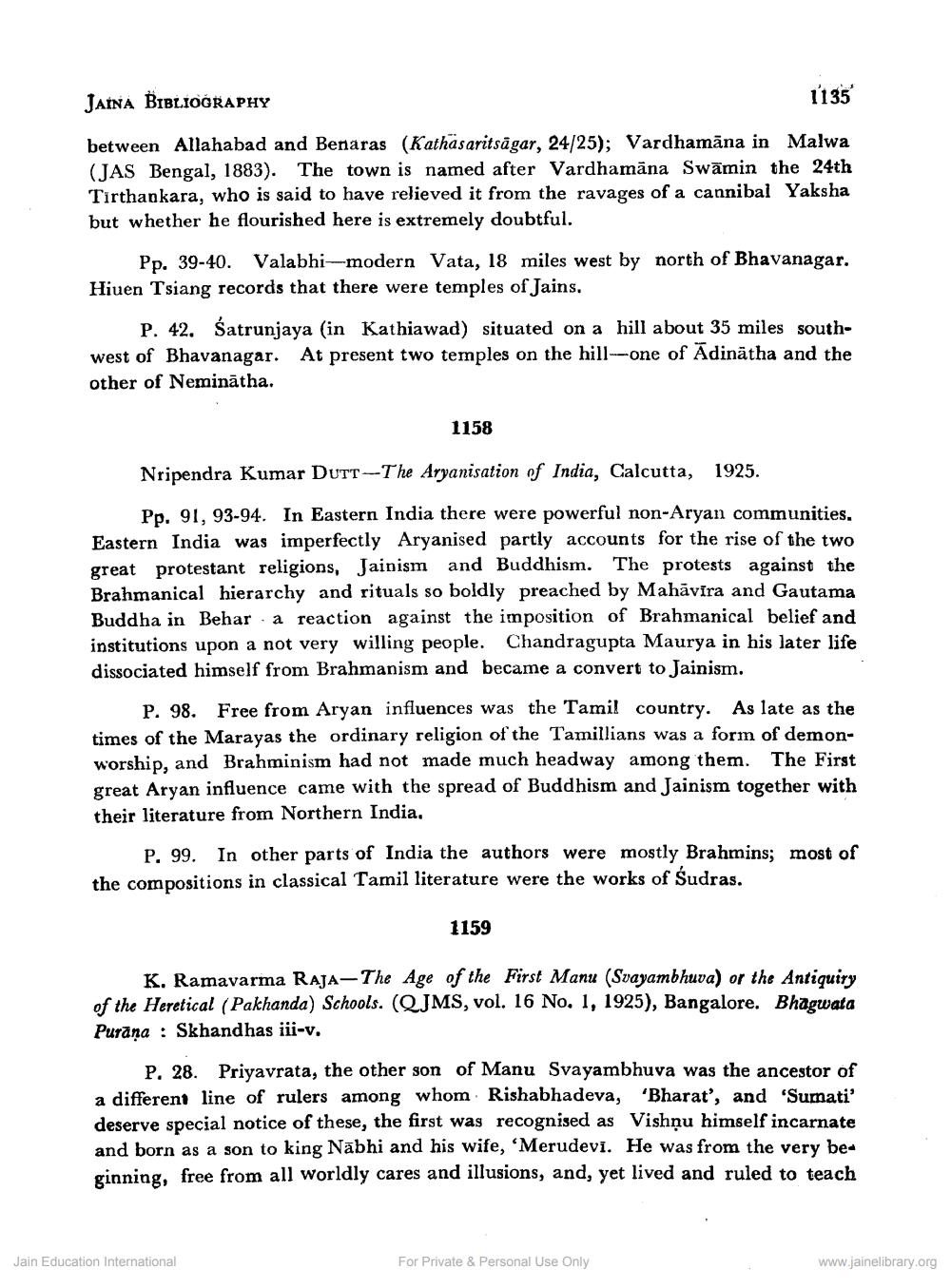________________
JAINA BIBLIOGRAPHY
1135
between Allahabad and Benaras (Kathasaritsägar, 24/25); Vardhamana in Malwa (JAS Bengal, 1883). The town is named after Vardhamäna Swämin the 24th Tirthankara, who is said to have relieved it from the ravages of a cannibal Yaksha but whether he flourished here is extremely doubtful.
Pp. 39-40. Valabhi-modern Vata, 18 miles west by north of Bhavanagar. Hiuen Tsiang records that there were temples of Jains.
P. 42. Śatrunjaya (in Kathiawad) situated on a hill about 35 miles southwest of Bhavanagar. At present two temples on the hill-one of Adinatha and the other of Neminātha.
1158
Nripendra Kumar DUTT-The Aryanisation of India, Calcutta, 1925.
Pp. 91, 93-94. In Eastern India there were powerful non-Aryan communities. Eastern India was imperfectly Aryanised partly accounts for the rise of the two great protestant religions, Jainism and Buddhism. The protests against the Brahmanical hierarchy and rituals so boldly preached by Mahavira and Gautama Buddha in Behar a reaction against the imposition of Brahmanical belief and institutions upon a not very willing people. Chandragupta Maurya in his later life. dissociated himself from Brahmanism and became a convert to Jainism.
P. 98. Free from Aryan influences was the Tamil country. As late as the times of the Marayas the ordinary religion of the Tamillians was a form of demonworship, and Brahminism had not made much headway among them. The First great Aryan influence came with the spread of Buddhism and Jainism together with their literature from Northern India.
P. 99. In other parts of India the authors were mostly Brahmins; most of the compositions in classical Tamil literature were the works of Sudras.
1159
K. Ramavarma RAJA-The Age of the First Manu (Swayambhuva) or the Antiquiry of the Heretical (Pakhanda) Schools. (QJMS, vol. 16 No. 1, 1925), Bangalore. Bhagwata Purana Skhandhas iii-v.
P. 28. Priyavrata, the other son of Manu Svayambhuva was the ancestor of a different line of rulers among whom Rishabhadeva, 'Bharat', and 'Sumati" deserve special notice of these, the first was recognised as Vishnu himself incarnate and born as a son to king Nabhi and his wife, 'Merudevi. He was from the very be ginning, free from all worldly cares and illusions, and, yet lived and ruled to teach
Jain Education International
For Private & Personal Use Only
www.jainelibrary.org




